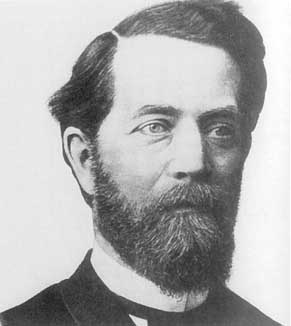 |
| Felix Klein — from Wikimedia. |
The book begins with a discussion of arithmetic from an axiomatic perspective, and then transitions into a more philosophical discussion about the certainty of mathematics. In the course of the philosophical discussion, Klein articulates the difference between idealism and formalism in the following way:
While we were discussing the first point of view [= the idealism of Kant and others], we took the position that the certainty of mathematics rests upon the existence of intuitional things which fit its theorems. The adherents of this formal standpoint [= Hilbert's], on the other hand, must hold that the certainty of mathematics rests upon the possibility of showing that the fundamental laws considered formally and without reference to their intuitional content, constitute a logically consistent system. (p. 13; emphasis in original)Putting the contrast in these terms pinpoints the crux of the Frege-Hilbert debate nicely, I think. The two philosophers were simply looking for two different kinds of proofs of the certainty of mathematics: Frege, a correspondence between math and some stuff in the idealized Kantian mind; and Hilbert, a technical proof of the harmlessness of a particular tool. Obviously, a debate beginning from such divergent conceptual standpoints was doomed to frustration.